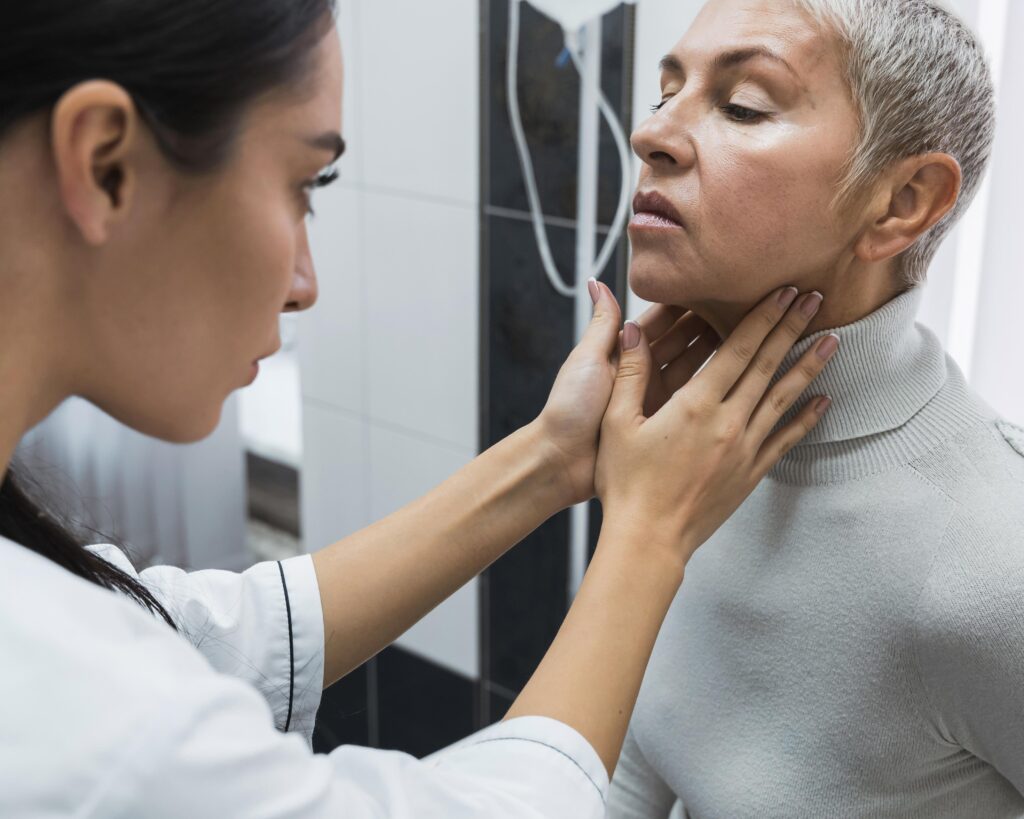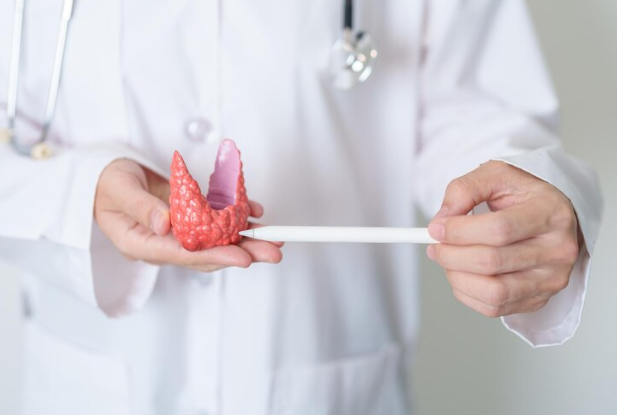The term retromolar trigone cancer must be strange to a majority of people, and that is okay, but its significance cannot be undermined. Found at the rear of the mouth, this area can act as a site for the accumulation of cancerous substances leading to advanced-stage disease.
If because of certain unusual symptoms in this area, you or someone that you are in contact with is concerned about it, then I would advise them to seek attention and action without procrastination. It is better to be prepared than to be sorry for one if he remains ignorant of retromolar trigone cancer then he will never be able to detect it early and the treatment will also become more difficult.

What is Retromolar Trigone Cancer?
One of the most complex cancers is retromolar trigone cancer as it occurs in the retromolar region located behind the last molars, thus making it a rare form of oral cancer that is usually not found. Even though it is extremely petite and Martian in shape, the area is not barren and contains a lot of important functions to play in the mouth.
The cells in the mouth region may go through changes and cancer cells could be produced from such cellular alterations. Likewise, the most common factors that contribute to the change of cells are alcohol and tobacco.
Some have described the disease as a silent killer. This is largely because warning signs are often absent or too weak in the initial stages. The subtlety of its onset will only cause many people to delay realizing something until it has happened.
As retromolar trigone cancer progresses, the areas near the back of the oral cavity affected begin to hinder healthy activities such as speech and food intake. Those who are at risk or are suffering from some discomfort in the back regions of the mouth need to be awareness of this type of cancer. For starters, grasping what it means helps in identifying the symptoms earlier than later.
Common Symptoms of Retromolar Trigone Cancer
Retromolar trigone cancer can also have a variety of symptoms though it is pertinent to note that this may not be the same for everyone. Pain or discomfort in the back of the mouth is one of the initial symptoms that many patients report to their doctors.
Judging discards during chewing or swallowing may be noticeable to some patients and this is something that causes trouble during normal meal routines. As the tumor grows bigger, changes to the spoken sounds can also result as the function of the oral region gets impaired.
Insufficient nutrition as shown by weight loss that does not appear to have any reasonable explanation is also a very worrisome symptom that could be presented by the cancer. For instance; eating could be such a painful experience that people eat less than they would normally do.
Swelling or lumps on the jaw are phenomena that many people experience and are often surprised that such changes in their bodies have never been detected. And these physical aspects should be taken seriously.
Persistent bad breath should also be considered as such tools as toothpaste, floss, and mouthwash, don’t help much. If any of these symptoms are present, they need to be reported immediately to a member of the health system to minimize risks.
Risk Factors for Developing Retromolar Trigone Cancer
Risk factors associated with the likelihood of developing retromolar trigone cancer include several elements. Tobacco use looms large. Tobacco in the form of smoking or chewing tobacco exposes users to carcinogen-rich products that may cause oral cancers.
Alcohol is another associated risk. Drinkers of alcohol in large amounts combined with smoking increase the risk of cancer manyfold.
Certain viral infections do play a role too. Other studies have revealed human papillomavirus (HPV) in patients who had cervical cancer, which furthermore has been associated with retromolar head and neck cancers.
Furthermore, the risk can also be increased by a lack of oral hygiene. Regular routine and check-ups with the dentist ensure that the person has healthy gums and healthy tissues and as a result lower the chances of a cancer-initiating event.
There is also the consideration of age and sex as risk factors. The majority of patients tend to be older than 45 years and this comes in that the male population suffers more from this type of cancer.
Also maybe there are factors that could be perhaps genetic; one’s own family background may have an implication of people having head and neck malignancy susceptibility.
Diagnosis and Treatment Options
Having regard to the typical retromolar trigone cancer diagnosis, it can be treated through tests and screen examinations. An examination can first look to physical inspection and find if there are any unusual lumps and even lesions within the mouth. MRIs and CT scans are used socially or in some cases as research tools to have a better view of the area.
Biopsy is definitive to the diagnosis. This is achieved by obtaining a tissue sample, which is done by a local investigation of the precancerous lesion.
The treatment options depend on the stage of cancer as well as the health status of an individual. Treatment usually never excludes surgery and where possible seeks to remove the tumor while preserving the tissues around it. Where necessary, radiation therapy is administered after surgery with the aim of destroying any remaining cancer cells.
Where the position has spread, Chemotherapy may also be considered a viable option. For effective management, there is a need for tailored treatment plans for each individual, which increases the chances of recovery.
Lifestyle Changes to Reduce Your Risk of Developing Retromolar Trigone Cancer
Diet plays a key part. Try eating for your meals plenty of vegetables and good fruit. Such food has antioxidant potential- and therefore, might be applicable for the repair of damaged cells.
Tobacco products such as chewing tobacco and cigarettes should be avoided by any means possible. The oral cavity not only constitutes the tongue and gums, but also retromolar trigone, which is cancerous owing to the sources, tools, or harmful mixtures. If you need assistance in relinquishing the habit inform a professional counselor or join a support group.
Regular dental visits should not be ignored for medical reasons. They are the ones likely to see the problem before it becomes one.
Keeping yourself hydrated is essential in keeping the mouth moist and overall health in check. It would be best to have in mind a target of at least 8 glasses of water each day.
Exercises such as yoga or meditation are highly recommended for stress management which in turn will prevent physical imbalance or mental deterioration that makes the body prone to various diseases.
Supportive Care for Those with Retromolar Trigone Cancer
Supportive care in this case will occur after therapies and is supportive to patients with retromolar trigone cancer. A supportive type of care helps enhance the quality of life in the time, during, and after treatment for cancer.
In addition, as the disease progresses, taking solids or swallowing for most patients becomes very painful and difficult. They are frequently effective for alleviating pain and have been used for many years, such as acupuncture or analgesic drugs.
As for nutrition, it’s also important. Dietary and nutritional changes might in some way minimize the symptoms that occasions with cobalt bombs and sternotherapy. Guided by a nutritionist, patients are able to know which food will help them avoid losing important strength.
Emotional support is quite crucial as well. Patients’ support groups enable them to express their personal experiences and feel less lonely. Counseling services are also useful in dealing with anxiety or depressive feelings that are experienced during that particular period.
Involving family members in the process helps create a supportive atmosphere at home which is very necessary for recovery and well-being considering the harshness of the diagnosis and treatment.
The Importance of Early Detection
Screening is very essential in the management of retromolar cancer in the trigone area. When such signs are detected, timely attention and treatment can be given, improving the chances of recovery significantly.
Please seek medical help as soon as possible if you experience any of the symptoms or any other issues that worry you as such help can be useful. What is also nice about this is that any effort to practice oral hygiene can go a long way in changes.
Know what the risks are and do not hesitate to actively discuss with your doctors about anything. Doing these may contribute to adding more effort to the prevention of the disease but more importantly the quality of life for the persons affected.



